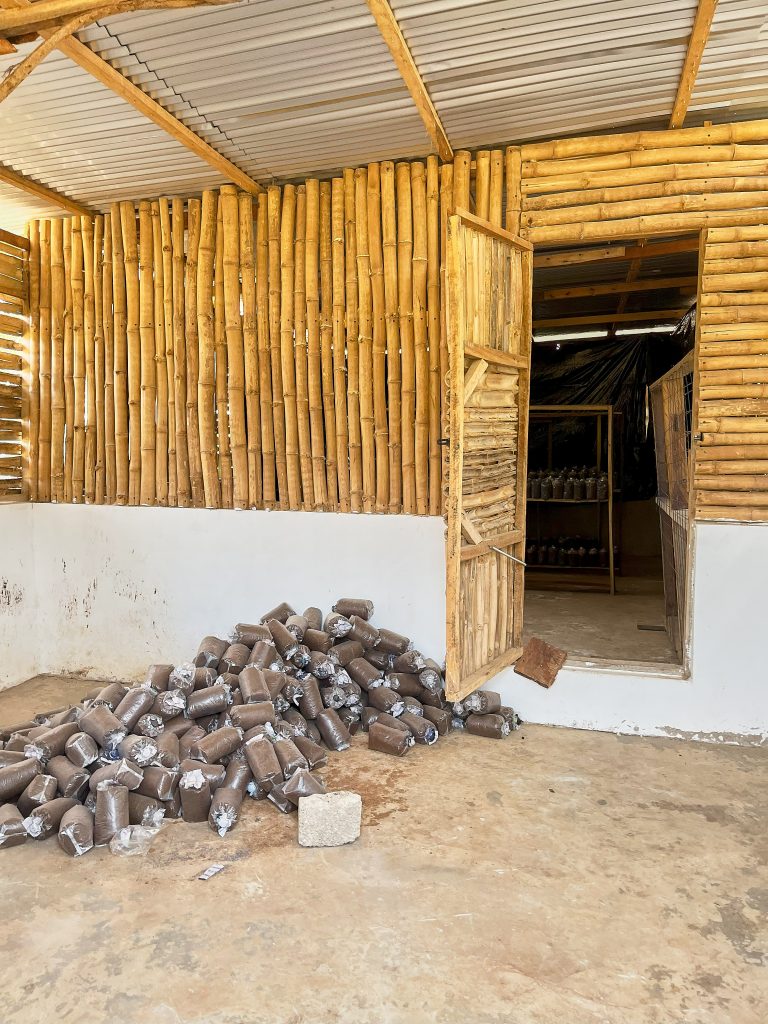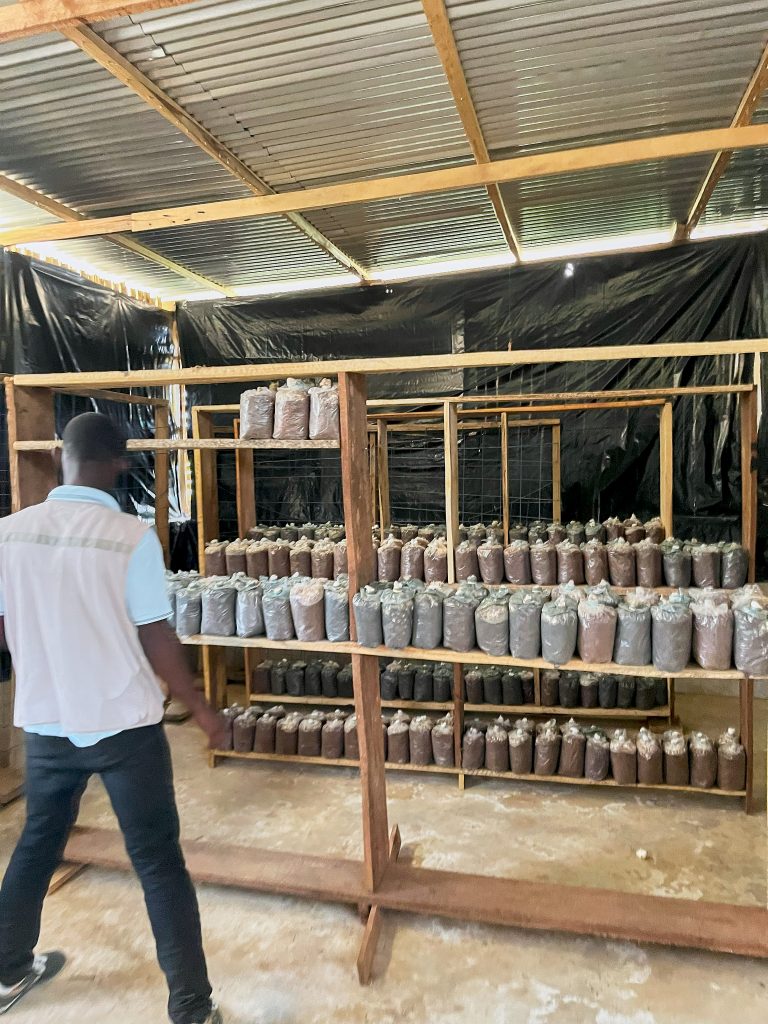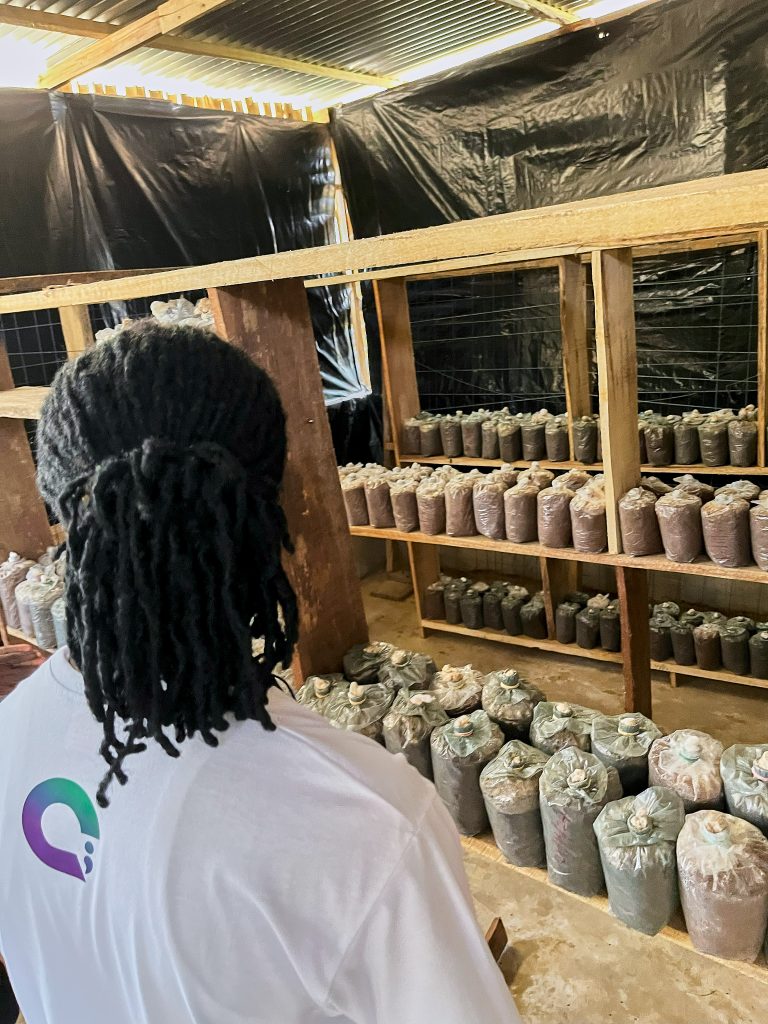The Importance of Mushroom Production in Sustainable Agriculture
With the ever-increasing population of the world, sustainable farming is gaining importance to meet the increasing need for food and natural resource protection. Growing mushrooms is a special and very helpful part of sustainable farming that helps the environment, economy, and society.
Environmental Benefits
- Efficient Land Use: Unlike traditional crops, mushrooms do not require vast expanses of arable land. They can be cultivated in controlled environments such as warehouses, basements, or specialized grow rooms. This efficient use of space helps to conserve valuable agricultural land for other purposes.
- Recycling Agricultural Waste: Mushrooms are grown on substrates such as straw, sawdust, coffee grounds, or other agricultural byproducts. By converting these materials into a valuable food source, mushroom farming reduces agricultural waste and promotes a circular economy.
- Low Water Consumption: Compared to other agricultural practices, mushroom production requires significantly less water. This makes it an environmentally friendly option, especially in regions facing water scarcity.
- Carbon Sequestration: Fungi play a crucial role in carbon cycling by breaking down organic matter and storing carbon in soils. Mushroom cultivation contributes to this natural process, reducing greenhouse gas emissions and improving soil health.


Economic Benefits
- High-Value Crop: Mushrooms are considered a high-value crop due to their nutritional and culinary appeal. They can provide farmers with substantial income even on small plots of land.
- Employment Opportunities: Mushroom farming requires labor for cultivation, harvesting, and processing, creating jobs in rural and urban areas. It can also empower marginalized communities by providing an accessible source of income.
- Export Potential: With rising global demand for mushrooms, especially exotic varieties like shiitake and oyster mushrooms, producers have the opportunity to access lucrative international markets.


CSIR MUSHROOM PRODUCTION
Social and Nutritional Benefits
- Nutritional Value: Mushrooms are rich in protein, vitamins, minerals, and antioxidants, making them a valuable addition to diets. They can address nutritional deficiencies, especially in regions where access to animal protein is limited.
- Food Security: Mushrooms can be produced year-round, providing a consistent and reliable food source. Their short growth cycle ensures rapid production, which is crucial for addressing food security challenges.
- Community Development: Small-scale mushroom farming initiatives often foster community development. Cooperative farming models allow farmers to pool resources, share knowledge, and collectively benefit from economies of scale.
Enhancing Sustainable Agriculture
Mushroom production aligns seamlessly with sustainable agricultural practices. It supports integrated farming systems by utilizing organic waste, promoting soil health, and offering farmers an additional income stream. Furthermore, mushrooms can be intercropped with other plants, enhancing biodiversity and optimizing land use.
A compelling mushroom production model involves engaging Ghana community heads to introduce mushroom farming at the household level. If at least 70% of homes invest in growing mushrooms, it would create a ripple effect: households could generate income, provide employment opportunities for the unemployed, and contribute to climate change mitigation through waste recycling and carbon sequestration. This model could also benefit students and attract investors by offering skills development, innovation, and business growth opportunities. AHAJAH Creo will champion this model by coordinating efforts, providing resources, and ensuring its successful implementation. This initiative addresses unemployment and strengthens local economies by involving unemployed individuals, students, and investors in the cultivation processes. Such an approach could significantly boost Ghana’s economy while promoting sustainable and inclusive development.
Challenges and Solutions
While mushroom farming offers numerous benefits, challenges such as the availability of quality spawn, limited technical expertise, and market access can hinder its adoption. Solutions include:
- Establishing training programs to equip farmers with the necessary skills.
- Developing local spawn production units to ensure accessibility.
- Creating market linkages to connect producers with consumers and exporters.
AHAJAH Creo is committed to solving these challenges by providing training programs, developing spawn production units, and facilitating market linkages to empower farmers and ensure the sustainability of mushroom farming.


MUSHROOM CULTIVATION
Conclusion
Mushroom production is a transformative practice that embodies the principles of sustainable agriculture. It reconciles environmental stewardship, economic viability, and social equity in a way that effectively addresses some of the most imperative challenges faced by modern agriculture. Mushroom farming practices surely can open ways toward a sustainable and food-secure future.
A CALL TO ACTION
By investing in mushroom farming, you will not only generate income and create jobs but also contribute to solving pressing issues such as unemployment, food insecurity, and climate change
Start growing Mushrooms Today!
Join us in supporting initiatives that empower our communities and protect the environment.
Learn more and get involved today!


